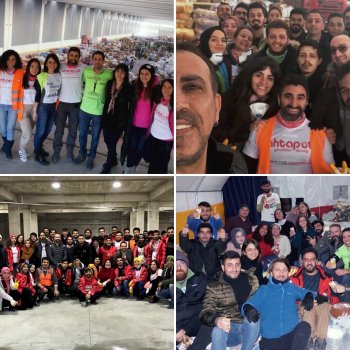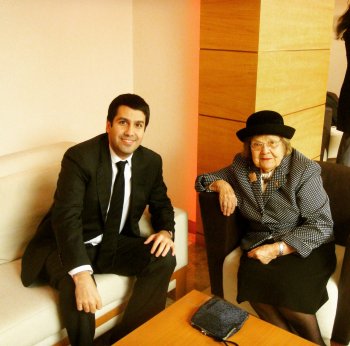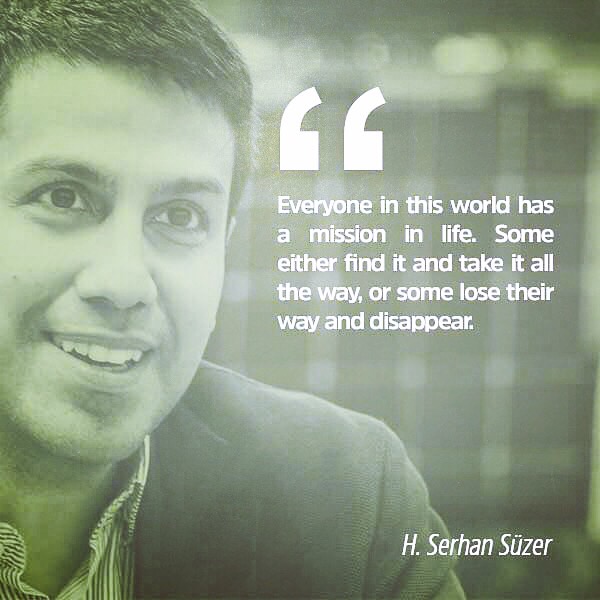The communication rules taught by the epidemic

Correct communication is the most effective way to solve our problems that deepen in times of disaster and crisis. I recently read the article titled "10 COMMUNICATION RULES taught by the epidemic" by Azime Acar, whose opinions about communication I liked. As I agree with the ideas in this article, I would like to share with you the communication rules taught by the epidemic with a few additions that I will make.
Communication is one of the most important factors that guides our lives and enable us to do what we want in life. After all, everything starts and ends with the human race. People can also act through communication and realize their thoughts or dreams. While discussing the communication rules during disaster and crisis periods, let’s start with the article written by Azime Acar:
|
10 COMMUNICATION RULES taught by the epidemic Azime ACAR Unforeseen crises bring on unforeseen challenges. The need to communicate grows in times of fear and uncertainty, people desperately need and rely on information. Yes, the situation is serious and unfortunately open-ended. We are not immune to this just yet. We now have indispensable rules such as "washing hands and maintaining social distance" to protect ourselves. Companies are also looking to find out how they can survive. Instead of being afraid of doing wrong and then doing nothing, it’s time to share the 10 communication rules to guide managers and crisis management teams who consider "People first, then people again". 1. DO NOT MAKE DECISIONS ON YOUR OWN No institutions infrastructure is capable enough to manage such a crisis, they are trying to manage amongst the unknown. Work with a team, not alone. No system, data or software can manage the crisis. As the crisis team, you must focus on taking responsibility and employee ownership of the decisions made. Remember, as the situation is changing rapidly every day, teams that cannot respond and show resistance fail. Simple things done with kindness and grace turn into big things. It's time to reduce prejudices and preconceptions, increase your foresight, be flexible, review and update facts over and over again.
2. DO NOT STOP COMMUNICATION Now more than ever, “extreme” communication is required as we strive to deal with urgent issues on numerous fronts. It's not the time to try to hide the facts or blame someone else. According to the PcW 2020 crisis research, three-quarters of those who are in a better place after the crisis are “those who gather real information accurately and quickly in the middle of the crisis and use this data effectively”. It is now time to explain and provide information regularly, concisely and in an understandable language.
Is it better to wait to collect the right information and communicate accordingly or to make short and frequent communication with limited information at hand even if it is incomplete? Save yourself from this dilemma. You may have seemed too slow and too late while trying to achieve such perfection. When you don't provide the information on time, the time gap is filled with false information, assumptions and false postings from social media. First, admit that there are many unknowns and that you have to act with incomplete information. Then say what you know and transparently accept what you do not know. Do one more thing, fix it quickly if you have broken ties in your stakeholder communication, keep the channels open. It is time to communicate quickly and transparently. And with all your stakeholders.
4. BE VISIBLE Understand the power of non-verbal communication. If you settle for just written explanations, you will miss the powerful influence of the necessary intonation, eye contact and body language, no matter how accurate the text is. Let them see you and connect emotionally. As Marshall McLuhan said, "the medium is the message". So, it's time to be in the medium.
5. CONNECT YOUR MIND WITH YOUR HEART One look, one stance, one photo doesn't make you an effective leader. If what you say comes from your heart, people will understand. If you choose the right words but do not want all what you say to be perceived as "hollow", act as if it happened to someone you love very much and convey your feelings with love and compassion. For instance, the Turkia Toyota CEO, Mr Ali Haydar Bozkurt’s description; "Even if we do not sell vehicles for a year, we will pay a salary, we will not fire anyone, we will provide the governments support to those in need." It's time to avoid looking opportunistic and callous.
6. BE THE RELIABLE SOURCE OF INFORMATION We are in an age of excessive information and fake news. There's a lot of misinformation going around. Misinformation is just as contagious as the virus itself. Your employees talk about it every day, it's natural, the whole world is talking about it. Be the one who provides accurate and up-to-date information. It is time for institutions to position themselves as reliable sources of information.
As the management, inform your employees. It's time to explain the decisions you made and why you made them
8.CONNECT Connect with employees. Ask how they feel, how they are trying to adapt, and try to understand their personal and professional challenges. Let employees reach you, keep communication channels open and involve them meaningfully. Gather, review and answer the questions that keep them busy. Instead of having long discussions on the facts that reach you, take action quickly, offer possible support. Easy to say, hard to listen, time to listen.
Collaborate with your employees and get information. Encourage your employees to take creative approaches that can respond to unexpected needs. For example, getting suggestions to maintain distance. It's time to take decisions by including all parties involved.
10. UPDATE YOUR SCENARIOS Prepare for the next crisis. COVID-19 is not the only threat, apparently many more epidemics await us. With this epidemic, we saw that one third of companies globally still do not have a business continuity plan and nearly half of them do not have a Crisis Communication Guide. Rapidly developing crises actually reveal the weaknesses, inadequacies and difficult decision-making processes of organizations. When the emergency episode of the crisis is over, you will forget the feelings you were in. Now is the time to ask yourself how the pandemic changed us, how we should change the existing plans, what lessons we learned, how we update and adapt the scenarios.
TOMORROW IS TODAY COVID-19 has already changed the business world and society in many ways, and it will change even more. The Harvard Business Review describes the winners from the last three recessions as those who "have established the right balance between short and long-term strategies by investing extensively in the future." We need to come out of this epidemic with strong learnings and be prepared for the next stage of normality and therefore direct resources accordingly. With the short-term troubles so mired in, it's time to lift our heads up from managing the current situation to scan the horizon, to think about tomorrow and beyond. Yes, the situation is serious and open-ended. We are not immune yet. We continue to evaluate risks, manage the current situation and keep our mind balanced with our hearts. Take care of yourself and your loved ones.
|
I have some things to add to this piece of good advice. I continue:
CONSIDER YOUR HEALTH FIRST AND APPLY IT
Inform your employees, customers and all stakeholders that health is the priority above all else, and share the necessary measures accordingly and apply them. To give an example of what we have done; since March, we have also had to wear a mask when everyone goes out. Also, last month we made a radical decision and closed down the head office.
WHAT YOU NEED TO DO TO KEEP MORAL OF YOURSELF AND YOUR ENVIRONMENT HIGH
You can always start by trying to be positive. There are things that everyone enjoys. You can start from these. Remember that your positivity, or vice versa, negativity is contagious. If you manage to be positive, it will spread to the professionals and customers you work with, and you will have created the most positive atmosphere possible during the crisis.
TAKE NOTE OF SOCIAL MEDIA NOW MORE THAN EVER
We can say that the media has been shaped in the current period and communication management has evolved into social media. Because there is no monologue (ie one-sided) communication in social media like the conventional press. In Social Media, there is dialogue, that is, a two-sided communication. There is an environment that triggers knowledge and can exchange feelings and thoughts on that subject and discuss issues. Of course, this has unfortunately turned into a little lynching culture in our country. However, I would like to remind you of the need to do research on social media by not ignoring this fact. The fast, frequent and continuous communication that Miss Azime mentioned in her article also applies to social media. In times of crisis, you can make a difference this way.
I hope this information has been useful. I would like to end my words by thanking Miss Azime for her contribution to this article; and I would like to give this final piece of advice: Take communication seriously in every aspect of your life and make it one of your priorities in order to realize your dreams and cope with difficulties.
Tag: eğitim









